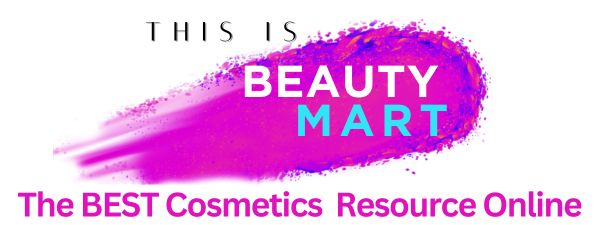Are you seeking ways to boost your skin health and overall radiance? Facials are a potent beauty treatment, known to reduce stress, improve blood circulation, and treat skin concerns like acne without scarring.
This blog post will highlight why facial is important and its many benefits, diving into how they maintain our skin’s health and rejuvenate it for that radiant glow you always desired. Ready to uncover the secrets of flawless skin? Let’s dive in!
Key Takeaways
- Facials are important because they reduce stress and promote relaxation, improving overall skin health.
- Regular facials can improve skin tone and texture by deeply cleansing, exfoliating, and promoting collagen production for a more youthful appearance.
- Facials play a crucial role in preventing premature aging by stimulating cell renewal and delivering essential nutrients to the skin.
Table of Contents
6 Benefits of Facials
Facials offer stress reduction and relaxation, improve skin tone and texture, prevent aging, detoxify the skin, treat acne and breakouts, as well as promote blood circulation.
Stress reduction and relaxation
Facials perform a crucial role in reducing stress and promoting relaxation. They incorporate massage techniques that not only improve blood flow but also relieve tension in the face muscles.
Such massages stimulate pressure points linked to your nervous system, contributing to lowering stress levels and enhancing your mood. The comforting atmosphere of a spa session coupled with gentle exfoliation enhances relaxation further, making you feel pampered while benefiting your skin health simultaneously.
An unexpected bonus: Regular facials can help reduce headaches too!
Improved skin tone and texture
Facials can work wonders for improving your skin tone and texture. By deeply cleansing and exfoliating the skin, facials help to remove dead skin cells, unclog pores, and even out skin tone.
The massage techniques used during facials stimulate blood circulation, which can promote a healthy glow and improve the overall texture of your skin. Additionally, facial treatments often include the application of serums or lotions that are specifically designed to enhance collagen production and boost cell turnover.
This can result in smoother, firmer skin with a more youthful appearance. So if you want to achieve that radiant complexion you’ve always dreamed of, regular facials are definitely worth considering.
Prevention of aging
Facials play a crucial role in preventing premature aging. Regular facial treatments can help slow down the natural aging process by promoting collagen production, which keeps the skin firm and elastic.
Facials also provide deep exfoliation, removing dead skin cells and stimulating cell renewal for a more youthful complexion. Additionally, facials improve blood circulation, delivering essential nutrients to the skin and helping to reduce fine lines and wrinkles.
By incorporating regular facials into your skincare routine, you can keep your skin looking radiant and rejuvenated for years to come.
Detoxification of the skin
Facials provide the skin with a detoxifying treatment that helps remove impurities and toxins. During a facial, cleansing products are used to deeply cleanse the pores, allowing for the removal of dirt, oil, and other pollutants that can clog the skin.
This process helps to unclog pores, prevent breakouts, and promote clearer skin. In addition to cleansing, facials often involve the use of masks or exfoliating treatments that further aid in detoxification by removing dead skin cells and promoting cell turnover.
By regularly incorporating facials into your skincare routine, you can help keep your skin clean and healthy-looking while targeting specific concerns such as acne or dullness.
Treatment of acne and breakouts
Facials are a great way to treat acne and breakouts. They can help unclog pores, reduce inflammation, and prevent future breakouts. By using specialized products and techniques, estheticians can target the root causes of acne and promote clearer skin.
Facials often include deep cleansing, exfoliation, extractions to remove blackheads and whiteheads, and the application of masks or serums specifically designed to combat acne. Regular facial treatments can make a significant difference in managing acne-prone skin and achieving a clearer complexion.
Promotion of blood circulation
Facials play a significant role in promoting blood circulation in your skin. Improved blood flow means that more oxygen and nutrients are delivered to the skin cells, giving you a healthy and radiant complexion.
This increased circulation also helps remove waste products, toxins, and impurities from the skin, reducing inflammation and preventing breakouts. So, by incorporating facials into your skincare routine, you can enhance blood circulation for healthier-looking skin.
3 Importances of Regular Facial Treatments
Regular facial treatments are vital for maintaining the health of your skin, preventing issues such as acne and aging, and achieving long-term rejuvenation.
Maintenance of skin health
Regular facial treatments play a crucial role in maintaining the health of your skin. By keeping up with these treatments, you can prevent common skin issues and enjoy long-term rejuvenation.
Facials help to deeply cleanse your skin, removing dirt, oil, and impurities that can clog pores and lead to breakouts. They also promote collagen production, which improves the elasticity of your skin and helps reduce the appearance of fine lines and wrinkles.
Additionally, facials stimulate blood circulation in your face, bringing oxygen and nutrients to the cells for a healthy glow. With regular facial care, you can keep your skin looking radiant and maintain its overall health for years to come.
Prevention of skin issues
Regular facial treatments play a crucial role in preventing various skin issues. By deeply cleansing the pores and removing dirt, oil, and impurities, facials help prevent clogged pores that can lead to acne breakouts.
Additionally, the exfoliation process during a facial removes dead skin cells, promoting cell turnover and preventing dullness. Facials also nourish the skin with vitamins and antioxidants through customized serums and masks, which help strengthen the skin’s natural barrier function.
This protective barrier is essential for preventing issues like dryness, sensitivity, and inflammation. With regular facials as part of your skincare routine, you can maintain healthy-looking skin while warding off potential problems before they arise.
Long-term skin rejuvenation
Regular facial treatments are essential for achieving long-term skin rejuvenation. Facials provide a deep cleanse, exfoliation, and hydration to your skin, which helps to improve its overall appearance and texture.
By removing dead skin cells and promoting collagen production, facials can reduce the signs of aging such as fine lines and wrinkles. Additionally, regular facial treatments stimulate blood circulation, resulting in a brighter complexion.
So if you want to maintain healthy and youthful-looking skin in the long run, make sure to include facials as part of your skincare routine.
How Often Should You Get a Facial? 8 Factors To Consider
To maintain healthy and clear skin, it is important to consider several factors when determining how often you should get a facial. Continue reading to find out the general guidelines for frequency and customize your skincare routine based on your individual needs.
Factors to consider
Considerations for getting a facial:
- Your skin type: Different facials cater to specific skin types, such as oily, dry, or sensitive. Choose a facial that suits your skin’s needs.
- Skin concerns: Identify any specific issues you want to address, like acne, wrinkles, or dullness. Certain facials target these concerns more effectively.
- Budget: Determine how much you’re willing to spend on a facial treatment. Prices may vary depending on the salon, location, and type of facial.
- Time availability: Consider how much time you can allocate for a facial session. Some treatments may take longer than others.
- Expertise of the esthetician: Research and choose a reputable esthetician who has experience in providing quality facials.
- Allergies or sensitivities: Inform your esthetician about any allergies or sensitivities you have so they can select suitable products for your facial.
- Desired results: Clarify the outcome you expect from the facial treatment with your esthetician to ensure they understand your goals.
- Personal preferences: Think about what kind of ambiance or environment you prefer during a facial session, such as soothing music or aromatherapy options.
General guidelines for frequency
To maintain healthy and glowing skin, regular facial treatments are recommended. Here are some general guidelines for how often you should get a facial:
- Aim for once every 4-6 weeks: It’s generally advised to have a facial every 4-6 weeks to give your skin enough time to recover and rejuvenate between treatments.
- Consider your skin type and concerns: If you have oily or acne-prone skin, more frequent facials may be beneficial. On the other hand, if your skin is sensitive or dry, spacing out the treatments to every 6-8 weeks may be more suitable.
- Listen to your esthetician’s advice: Your esthetician will assess your skin and recommend a frequency that suits your individual needs. They have the expertise to determine what will work best for you.
- Take into account your skincare routine: If you have an extensive skincare routine that already includes exfoliation and deep cleansing, you may not need as many facials. However, if you rely on facials for deeper exfoliation and hydration, more frequent treatments might be necessary.
Customization based on individual needs
Customization is an important aspect of facial treatments. Tailoring the treatment to suit your specific needs ensures that you get maximum benefits. Here are some ways in which facials can be customized:
- Product selection: The esthetician will choose products based on your skin type and concerns. Whether you have oily, dry, or sensitive skin, the right products will be used to address your specific issues.
- Extraction techniques: If you have clogged pores or blackheads, the esthetician will use gentle extraction techniques to remove impurities without causing damage or scarring.
- Massage pressure: Facial massages can improve blood circulation and relax tense muscles. The pressure applied during the massage will be adjusted according to your preferences and comfort level.
- Mask selection: Different masks offer various benefits for the skin. Your esthetician will select a mask that targets your specific concerns, such as hydration, brightening, or detoxification.
- Treatment duration: The length of the facial treatment can be customized based on your schedule and needs. Whether you want a quick pick-me-up session or a more indulgent experience, the duration can be adjusted accordingly.
3 Precautions to Take During Facials
Choose a reputable esthetician who is qualified and experienced in providing facial treatments, and make sure to communicate your specific skin concerns and sensitivities before the treatment begins.
Choosing a reputable esthetician
To ensure you receive a high-quality facial treatment, it is crucial to choose a reputable esthetician. Look for estheticians who are licensed and have received proper training in skincare.
You can also check online reviews and ask for recommendations from friends or family members who have had positive experiences. A reputable esthetician will listen to your skin concerns, assess your skin type, and provide personalized recommendations for treatments and products.
By selecting an experienced professional, you can trust that they will use the right techniques and high-quality products tailored to your specific needs, giving you peace of mind during your facial experience.
Communicating your skin concerns and sensitivities
Letting your esthetician know about your skin concerns and sensitivities is crucial for a successful facial. By openly communicating, you can ensure that the right products and techniques are used during your treatment.
Whether you have acne-prone skin, dryness, redness, or any other specific concern, sharing this information will help your esthetician customize the facial to address your unique needs.
Additionally, if you have any known sensitivities or allergies to certain ingredients, it’s important to mention them beforehand to avoid any adverse reactions. This way, you can fully enjoy the benefits of a tailored facial while keeping your skin safe and happy.
Following aftercare instructions
Taking care of your skin after a facial is just as important as the treatment itself. Here are some key aftercare instructions to ensure your skin stays healthy and glowing:
- Keep your hands off: Avoid touching or picking at your skin after a facial to prevent irritation and infection.
- Avoid direct sunlight: Protect your skin from harmful UV rays by wearing sunscreen, especially in the first few days after a facial.
- Stay hydrated: Drink plenty of water to keep your skin hydrated and promote healing.
- Skip makeup for a while: Give your skin a break from cosmetics for at least 24 hours after a facial to allow it to breathe and recover.
- Use gentle skincare products: Stick to mild, non-irritating cleansers, moisturizers, and serums that won’t strip away the benefits of your facial.
- Follow any specific instructions: Your esthetician may recommend additional steps or products tailored to your skin type and concerns. Be sure to follow their guidance for optimal results.
Conclusion | Why Facial Is Important
Facials are an essential part of a skincare routine. They offer numerous benefits such as improved skin texture, reduced stress, and prevention of aging. Regular facial treatments help maintain healthy skin, prevent issues, and promote long-term rejuvenation.
So don’t underestimate the importance of facials; they play a vital role in keeping your skin beautiful and glowing.
FAQs
1. Why is facial important in a skin care routine?
Facial plays an essential role in maintaining healthy skin by promoting skin detoxification and cleansing, leading to clear and glowing skin.
2. How does regular facials boost my confidence?
Regular facials, as part of your selfcare routine, can result in healthy-looking skin which boosts your confidence.
3. What are the advantages of regular facial treatments?
The benefits of facial treatments include effective skincare detoxification, enhanced complexion through proper skin cleansing and improved health for different types of skins using appropriate facial products.
4. Can I do a facial at home or should I go to a spa?
You can certainly perform basic steps of a facial at home with suitable products specific to your skin type; however, professional spas offer specialized techniques used in facial treatments that may provide more significant results.
5. What’s the significance of massage in a skincare routine involving facials?
Massaging during a Facial Care not only helps you relax but also boosts circulation and stimulates your body’s lymphatic system helping further toxins removal from the surface resulting into better absorption of Facial Products thus making it an integral step.



